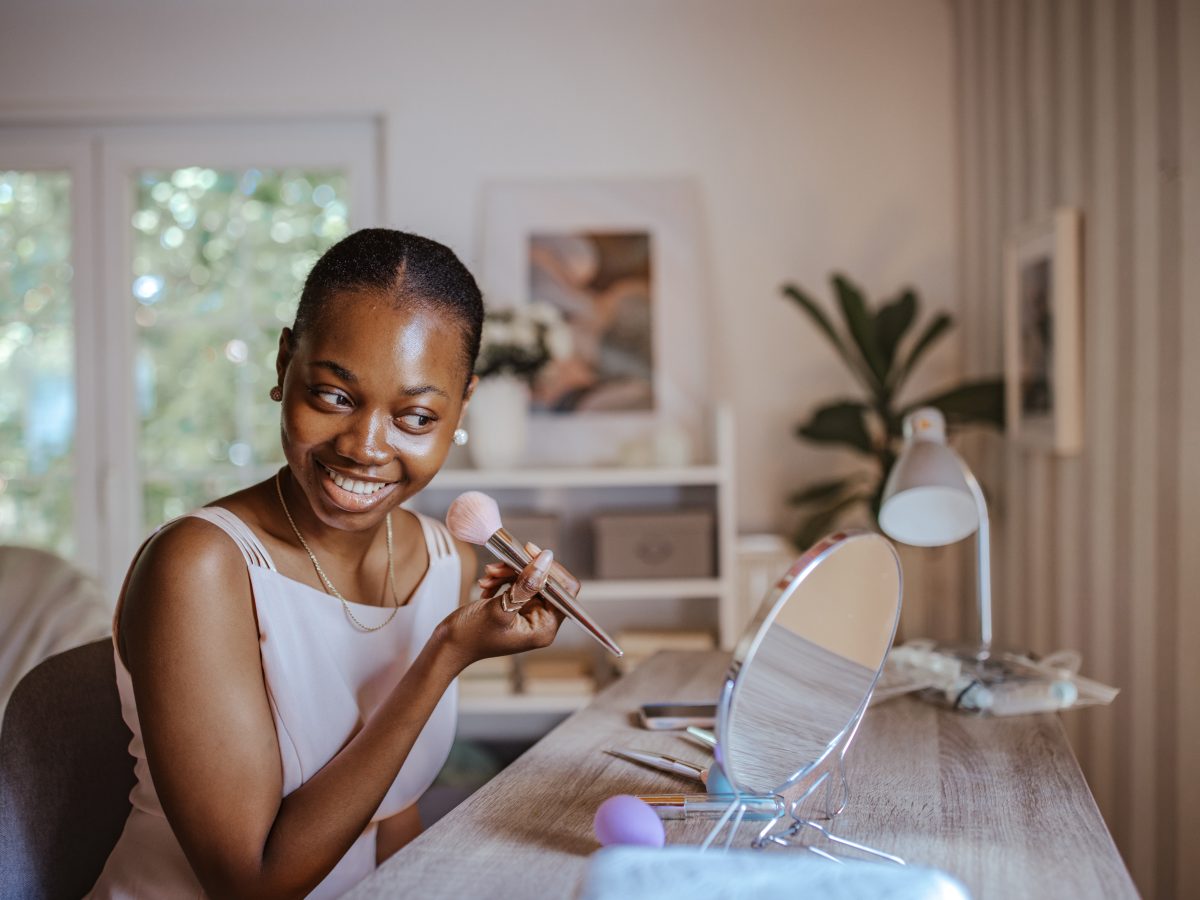
Over the past several years, the issue of inclusivity in the makeup industry has become increasingly concerning, highlighting brands’ lackluster efforts in providing shade diversity. The real question is: why should the Black community continue to support brands that fail to cultivate a culture that uplifts people of color?
A report from Mintel revealed that 63% of Americans feel inspired by beauty brands that highlight diversity in their advertisements. Additionally, 82% of consumers seek racial diversity in beauty brands, and 79% want to see proper representation of all genders in advertisements. As a Black woman, I have witnessed companies profiting from the Black dollar while failing to fairly compensate Black content creators compared to their white counterparts. To further validate the importance of inclusivity, statistics from a report by TriNet reveal that brands with diverse executive teams are 33% more likely to achieve financial success from their inclusivity efforts. However, many brands still do not offer a diverse range of foundation shades. In light of this ongoing issue, should we consider completely disowning brands that do not actively support communities demanding immediate change?
This lack of action persists despite feedback from the Black community. Many Gen Z consumers prioritize advocating for greater diversity and inclusion within beauty products. However, a 2021 report by Employee Benefit News stated that 44% of young workers felt discriminated against in the workplace and expressed a desire for more inclusive environments. Furthermore, brands such as Make Up For Ever, ILIA, Tarte, It Cosmetics, and Youthforia have faced criticism for not providing a wide range of foundation shades. Black content creators have raised concerns about the frequent absence of people of color in discussions surrounding product development and brand expansions, which ultimately affects shade diversity. These creators have publicly called out companies like Patrick Star’s “One Size” makeup launch, reporting that some content creators received incorrect foundation shades to endorse. This situation highlights the negligence of these brands’ social media teams in verifying their collaborations with creators.
In 2021, Statista found that 40% of Gen Z beauty consumers consider diversity and inclusion to be the most important brand values when purchasing beauty products. This raises the question: why have many brands been cutting costs in product formulation and focusing more on misleading marketing campaigns that claim to support shade diversity while clearly lacking adequate development for darker skin tones? Is it surprising that these companies encounter inclusivity issues after releasing such insufficient shade ranges in their foundation products? Despite public relations initiatives and statements apologizing for their racial insensitivity, has anything truly changed within these brands?
The backlash faced by beauty brands like Tarte and Jeffree Star due to their inadequate compensation of Black content creators and racial comments is not a new phenomenon. Treating Black creators and minority-owned businesses fairly involves acknowledging the valuable contributions they have made to the beauty industry. Additionally, brands that have gained significant attention for their promotional trips and invited Black content creators have been reported to not compensate equally compared to their counterparts in terms of financial rewards, gift incentives, and proper representation. According to Savanta’s 2023 DEI report, 31% of U.S. shoppers will avoid purchasing from brands that are not committed to diversity, equity, and inclusion initiatives.
With the recent revocation of the Equal Employment Opportunity Act of 1965 impacting diversity, equity, and inclusion (DEI) initiatives, companies like Target have begun to pull back on their DEI efforts even as they strive to enhance Black representation. Despite Target’s 2022 commitment to equitable career advancement opportunities aimed at supporting economic inclusivity, founders like Tabitha Brown of Donna’s Recipe and Melissa Butler of The Lip Bar have been significantly affected by these changes. Reports indicate that companies are significantly lowering prices on ethnic brands, offering discounts of 50-70% on texture hairstyling products. This economic shift has significantly affected many Black-owned and minority-owned businesses that have worked diligently to enter retail and finally be recognized as brands driving transformative developments within the beauty industry.
Supporting Black-owned and minority-owned brands is crucial, but the potential rise in tariffs may pose additional challenges. The proposed tariffs could increase costs by up to 60% on goods from China and 25% on imports from countries like Mexico and Canada. This could create a major impact on further innovation within these beauty products. Now more than ever, we need to ensure proper representation across all platforms by purchasing beauty products that promote inclusivity. As my mother always said, “My money is green,” meaning it can be spent anywhere. This mindset should encourage us to stop supporting beauty brands that fail to celebrate the beauty that people of color and individuals of all genders bring to the table.